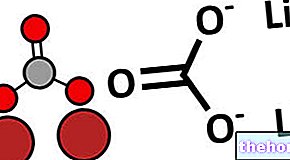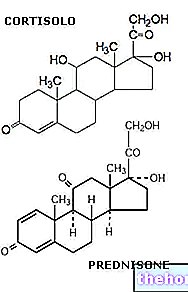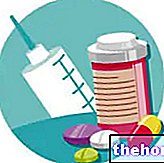Definition
Schizophrenia is a psychiatric pathology characterized by the "inability" of the individual suffering from it to distinguish what is real from what is not. This condition also interferes with patients' abilities to communicate, manage emotions, think coherently and make judgments.
Causes
There are several hypotheses on what are the triggering causes of schizophrenia. However, it is believed that this disease has a multifactorial etiology. Among the factors that favor the onset of the disease, we find: heredity, environmental stress, psychological stress and any situations that may have occurred during the period of gestation or during childbirth.
Symptoms
The typical symptoms of schizophrenia can be divided into two groups: positive (or productive) symptoms and negative symptoms.
Positive symptoms include: delusions (persecutory, grandeur or mind reading), hallucinations, especially auditory, bizarre behaviors and thought disorders.
Among the negative symptoms, however, we find: social withdrawal, emotional flattening, poverty of qualitative and quantitative thinking.
The information on Schizophrenia - Drugs for the Treatment of Schizophrenia is not intended to replace the direct relationship between health professional and patient. Always consult your doctor and / or specialist before taking Schizophrenia - Drugs to Treat Schizophrenia.
Medicines
Unfortunately, there are currently no real drugs for the treatment of schizophrenia. The pharmacological treatment that is undertaken, therefore, is aimed at reducing the symptoms induced by the disease. For this purpose, patients suffering from schizophrenia are administered antipsychotic drugs.
Furthermore, psychosocial therapy can be added to the treatment with the aforementioned drugs to help patients communicate and relate to other individuals.

Below are some antipsychotic drugs used in therapy against schizophrenia and some examples of pharmacological specialties; it is up to the doctor to choose the active ingredient and dosage most suitable for the patient, based on the severity of the disease, the state of health of the patient and his response to treatment.
Perfenazine
Perphenazine is an antipsychotic belonging to the phenothiazine class. This active principle works by antagonizing the D2 receptors for dopamine, one of the neurotransmitters that seems to be involved in the mechanisms underlying the onset of schizophrenia.
Perphenazine (Trilafon ®) is available for oral administration in the form of tablets. The drug dose usually used in outpatients (adults and children over 12 years of age) is 8-16 mg twice a day.
In hospitalized patients, however, the dose of drug used varies from 8 mg to 32 mg, to be taken twice a day.
Haloperidol
Haloperidol is an antipsychotic belonging to the class of butyrophenones. More precisely, it is its progenitor.
This active ingredient works by antagonizing dopamine D2 receptors and also has an affinity for 5-HT2 receptors for serotonin.
Haloperidol (Haldol ®, Serenase ®) is available in pharmaceutical formulations suitable for both oral and intramuscular administration and has therapeutic indications for the treatment of acute and chronic schizophrenia.
When used in the acute phase, haloperidol is usually administered intramuscularly at a dose of 5 mg. The injection should be repeated every hour until adequate symptom control is achieved.
When used in the chronic phase, however, the dose of haloperidol usually used is 1-3 mg, to be administered orally 2-3 times a day.
Olanzapine
Olanzapine is an atypical antipsychotic belonging to the class of benzazepine derivatives. This active substance is an antagonist of dopamine D2 and serotonin 5-HT2 receptors.
Olanzapine (Olanzapine Teva ®, Zyprexa ®, Zalasta ®, Zypadhera ®, Zyprexa Velotab ®) is available in pharmaceutical formulations that allow for oral and intramuscular administration.
When administered orally, the usual dose of olanzapine ranges from 5 mg up to 20 mg per day. It will be up to the doctor to determine the most appropriate dose for each individual patient.
Aripiprazole
Aripiprazole (Abilify ®, Abilify Maintena ®) is also an atypical antipsychotic available in pharmaceutical formulations suitable for both oral and intramuscular administration.
For the treatment of schizophrenia, the usual oral dose of aripiprazole in adult patients is 15 mg per day, preferably taken in the evening. If your doctor deems it necessary, you may increase the dose of the drug given to a maximum of 30 mg per day.
For intramuscular administration, on the other hand, aripiprazole is available in the form of a powder and solvent for prolonged-release suspension for injection. The drug can be administered intramuscularly only by a doctor or nurse, at a dose of 400 mg per month.
An interval of at least 26 days must elapse between one administration and the next.
Also, after the first injection, aripiprazole should be taken orally for another 14 days. After that, the medicine will be given parenterally only.




























